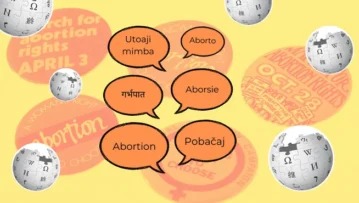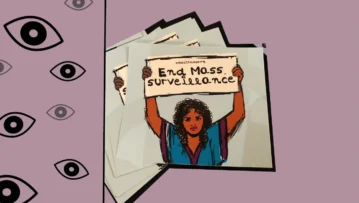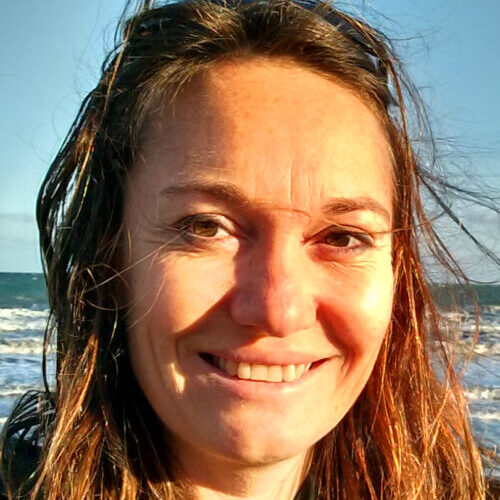…the first ever conference about centering marginalized knowledge online! Rhodes Memorial in Cape Town, image by Chris Snelling, CC BY-SA 3.0, via Wikimedia Commons Cape Town, South Africa, 18-19 July 2018The problem: 51% of the world is online today, but the internet doesn’t represent our diversity. The knowledge of marginalized communities is the knowledge of the majority of the world. Yet most online public knowledge still skews towards white, male, and global North knowledge. It is a hidden crisis of our times. Our plan: We’ll host a conference in Cape Town, South Africa – co-located with Wikimania, an annual conference for Wikipedians – to build more awareness, allies, and joint action plans in response to this hidden crisis. We will convene marginalized community organizers, technologists, scholars, artists, and Wikimedians in the first conference of its kind. The change we hope to create: With these newly created alliances and networks, we will work together towards more diversity and inclusion in the experience of internet design, architecture, content, and governance. We intend to dramatically change the way the internet represents the majority of the world. |
Why is this conference important?
Seventy-five percent of the world’s online population is from the global South, and nearly half is projected to be women. Yet while global access to the internet may be within our grasp (despite the persistence of uneven connections), research shows that content online remains heavily skewed towards rich, Western countries.
In particular, public knowledge on the internet – as exemplified by Wikipedia, the 5th most visited website in the world – continues to be written primarily by white men from Europe and North America. Only 20% of the world edits about 80% of Wikipedia’s global content currently, and we estimate that 1 in 9-10 of the editors self-identifies as female. As a result, Wikipedia has excellent coverage of popular American TV shows and U.S. and European military history, while much of the greater world’s knowledge remains absent.
But Wikipedia is only one example of the deeply skewed experience of the internet and its technologies. Face recognition software, for instance, may have a significant racial bias, while search and autocomplete algorithms may prioritise deeply inflammatory content from the extremists around the world. From the design and architecture of the internet, to the production and reproduction of online knowledge, this globalised “public sphere” does not only reflect the structural and representative inequalities of our world. It can, in many ways, amplify and deepen them.
In other words, the internet of the (marginalized) majority is produced by the (western, white, male) minority.
So even as we fight for internet freedom and access, we need to ask deeper questions and seek meaningful responses. Whose voices, faces, and stories are missing from the internet? Whose knowledge is represented on the internet and whose is not? Whose internet, and whose freedoms, are we really defending?
It is only through seeing and knowing each other as fully as possible, that we can hope to overcome some of the worst crises of our times, caused by stereotypes and discriminations. To achieve this, we believe we must decolonize the internet – we need to re-imagine and re-design our online technologies and spaces to center and reflect the majority of the world.
Most significantly: we believe that when scholars and organisers from marginalized communities around the world engage in a thoughtful and productive conversation with technologists, archivists, linguists, artists and others, we can design together powerful and creative ways to transform the internet into a public sphere truly for and from us all.
What we want to do
Whose Knowledge? is a global, multilingual campaign that seeks to make the internet reflect the richness and diversity of the physical worlds we live in. We focus on centering the knowledge of the marginalized online: including women, people of colour, indigenous peoples, LGBTQI communities, and others from the global South.
We are inspired by the leadership of marginalized communities across the world in making their knowledges and histories visible and vocal. We support them to produce and amplify these knowledges, and connect them with allies in Wikimedia and the broader free knowledge movement. We also partner with technologists, scholars, librarians, archivists and others, who are helping us create online spaces to host and make marginalized knowledges more accessible.
For the first time ever, we want to bring together 75-100 key experts from disparate communities – who all work on issues of knowledge and online technologies from multiple perspectives – and develop a shared understanding of the challenges and opportunities we have together.
For two days in 2018 (18-19 July), this group of thinkers and doers in the world of (online) marginalized knowledges will have an opportunity to share their experiences and build new collective strategies to increase diversity and inclusion when it comes to internet design, architecture, content, and governance. We know that when we design a powerful collective process in which unusual (and sometimes unlikely) allies come together, we can facilitate powerful and effective conversations and actions.
We are co-locating this conference with Wikimania – the annual conference of Wikimedians and Wikipedians, the core volunteers of the free and open knowledge movement (Whose Knowledge? is a Wikimedia affiliate organisation). We intend to have half of our conference participants also attend Wikimania (20-22 July) in Cape Town, South Africa, so that there are significant overlaps and continuations in the conversations we begin at the Decolonizing the Internet conference.
What we hope to achieve
- A convening of unlikely but powerful allies who can begin working together to redesign the internet – and public online knowledge – for diversity and inclusion.
- A mapping of the key issues, challenges, and opportunities in this work.
- The beginnings of a shared vocabulary, best practices, and potential design solutions for centering the knowledge of the marginalized.
- Next steps and actions led by participants, who inspired by this gathering will have a chance to bring what they have experienced and shared together to their local realities and current projects.
- More specifically, we hope to see how this emerging and collective new set of vocabulary and actions will infuse Wikimania – the biggest gathering of Wikipedians and one of the biggest open knowledge conferences in the world.
Browse all Decolonizing the Internet posts.






